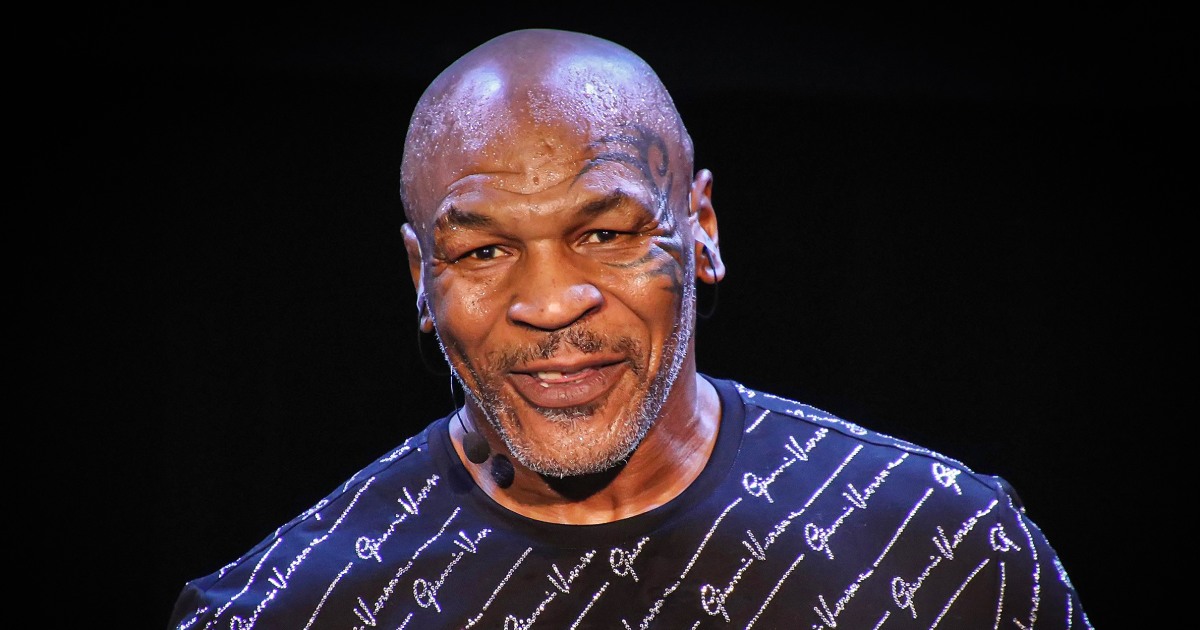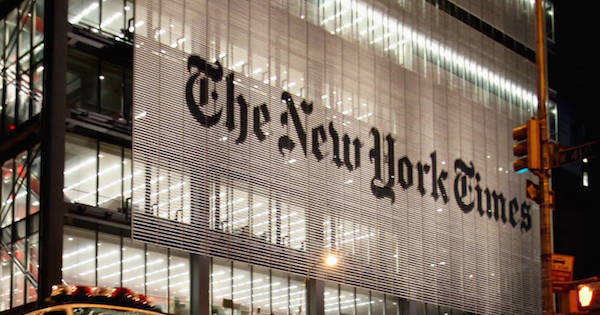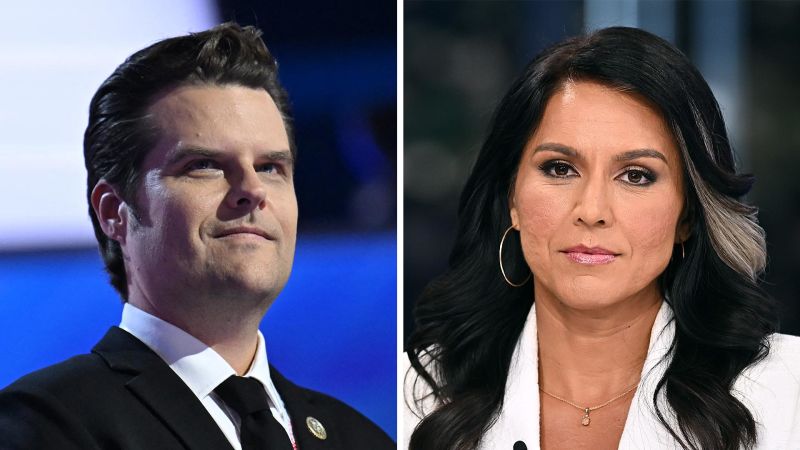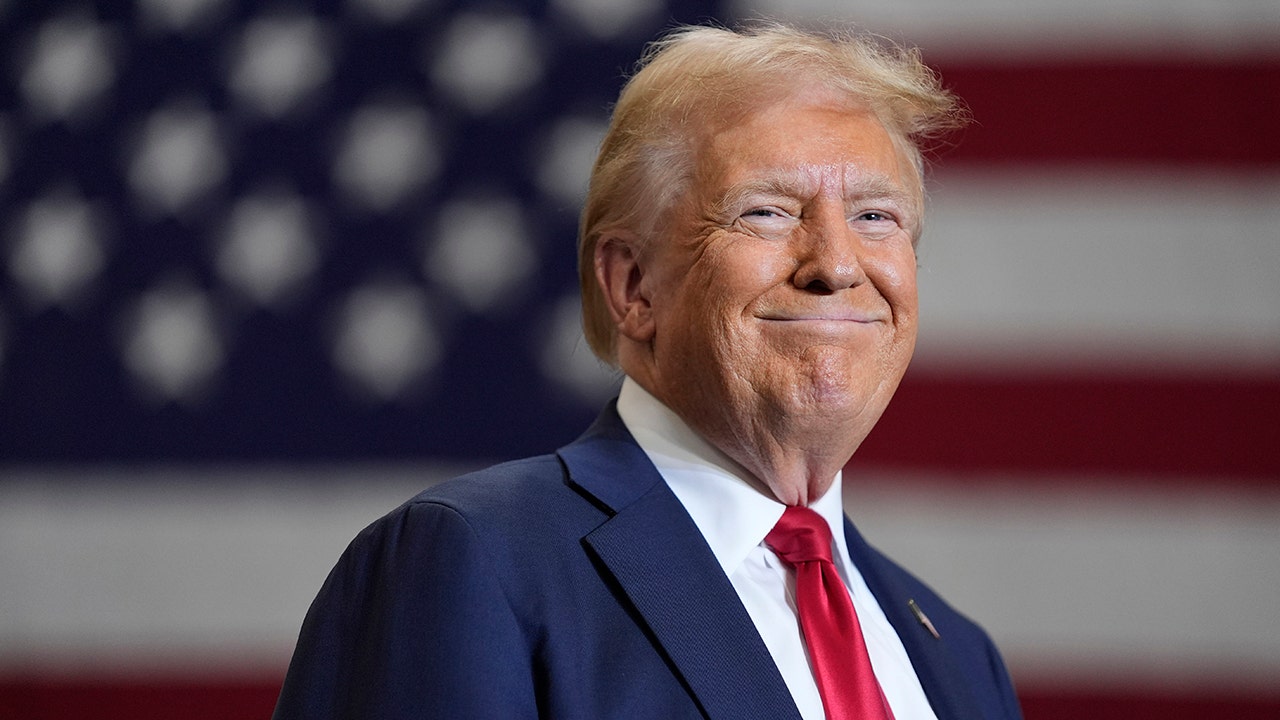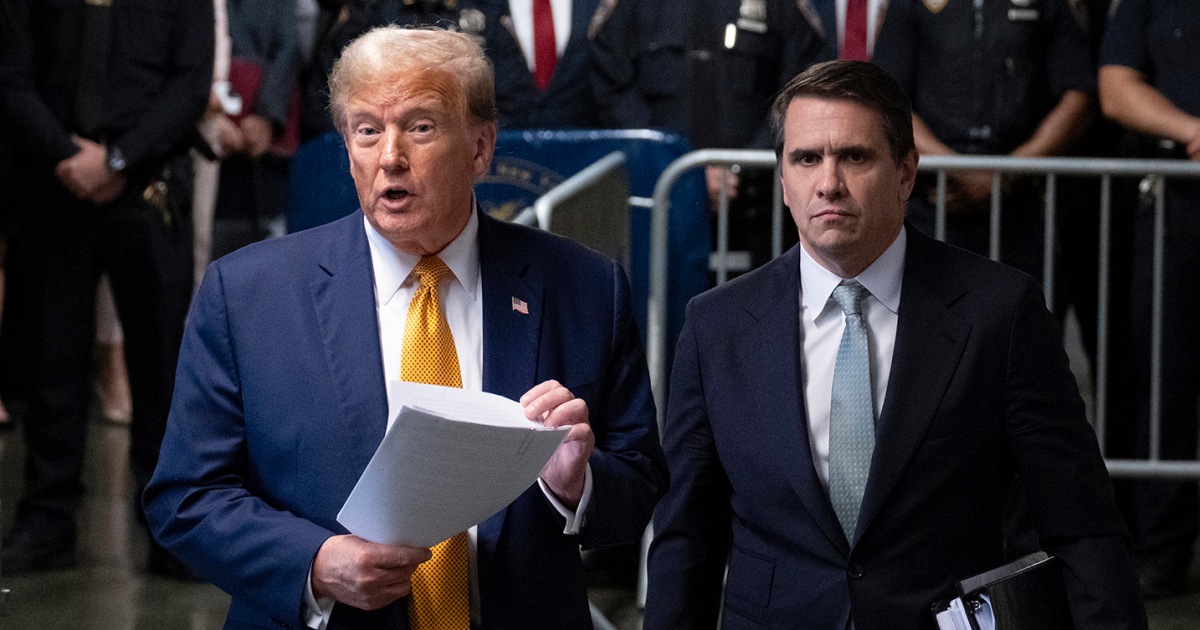Like others, I’ve been trying to make sense of the last election. A lot of obvious things can be said about it, and many have said them. But what does it all add up to?
Is this truly an era of transformed coalitions, or serial “change candidates,” each replacing the last?
Note: The following analysis relates to domestic economics. Consideration of Trump’s foreign policy will come later. It looks like the pro-empire Atlanticists are in for a fight. Pro-genocide folks, on the other hand, are in for a treat.
Harris supporters were motivated by protecting democracy and abortion, while Trump supporters voted to fix the economy and slow immigration:
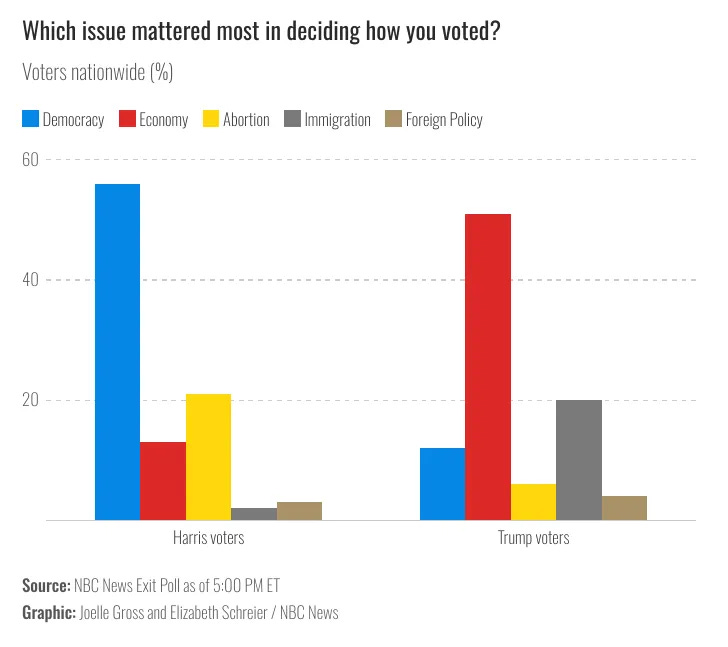
And there were many more votes for Trump and his pitch than for Harris and hers:
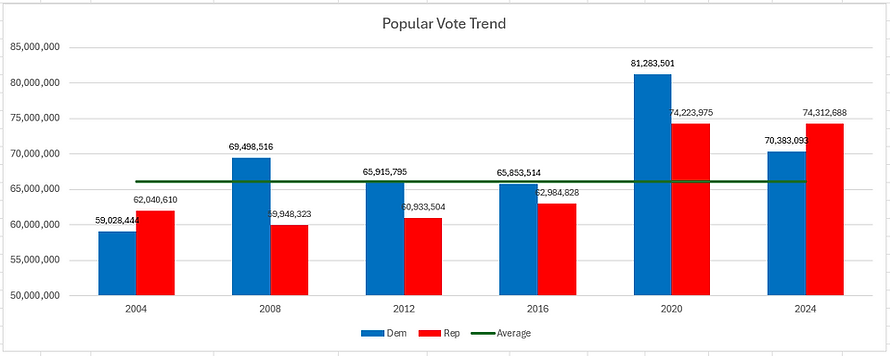
(Latest popular vote numbers here.)
In addition, the stay-at-home count was higher. Though more than 150 million votes have been tallied so far, the 2020 total was larger: 158 million. Harris lost about 10 million Biden voters. Some went to Trump (we don’t know how many), and some went into the wind. Very few votes — about 1.5% — went to third parties.
Trump’s total increased by about one million votes and he gained some unhappy Democrats. It would be good to know who switched, who stayed home and why, but this is thus far unknown.
What can we conclude from this data? Quite a bit, but first we must acknowledge that the following statements are true:
1. The Democratic Party has less and less represented workers since Bill Clinton’s first term — as Jaime Harrison put it, “abandoned the working class” — and voters appear to know it.
Thomas Frank in 2016 talking to the National Book Review on Democrats’ change in who they represent:
Does the Democratic Party have a vested interest in perpetuating income inequality?
…[W]hile they know inequality is bad and while it makes them sad, they aren’t deeply concerned about it. And that’s because, as a party, they are committed to the winners in the inequality sweepstakes: the “creative class,” the innovative professionals in Silicon Valley and on Wall Street. The people who are doing really well in this new gilded age. That’s simply who the Democrats are nowadays.
On the other side of the coin, they are not structurally aligned with the organizations of working people any longer, and as a result they aren’t terribly concerned with working people’s issues.
Most voters aren’t political junkies, but they know when they’re hurting, and most are hurting now.
2. Democratic Party leaders reject that analysis. All of their statements say so. For example:
Will they come around later? Perhaps but unlikely, in my view. There’s just too much donor money at stake these days, and both parties, including the Democrats, won’t wean themselves off it.
Note that it’s not just the parties getting rich off the flow. Politicians get personally quite wealthy off it as well. Pelosi, quoted above, is both personally wealthy from her husband’s stock portfolio and also a fundraising powerhouse for others. From CNN in 2020:
By the end of 2019, Pelosi’s office said she has collected $815.5 million for House Democrats since becoming part of the party leadership in 2002 – including $87 million last year alone. Consider that: A single person, who is not the president of the United States, has raised nearly a BILLION dollars for her colleagues and the party’s broader efforts to win or keep the House majority over the last 17 years.
Don’t expect of any this to change anytime soon.
If the above things are true, we now have something new, what Ryan Grim called “a coalition of the working class and the super rich in the Republican party.” Republicans can’t please both of these constituencies, and like Democrats, institutionally don’t want to, at least not on economic issues. The super-rich prey on their workers. One has to pick sides, and I think both parties have, though their coping strategies are different.
Republican appeal to workers is ultimately cultural and religious. Look at what they’ve done to the Court. When Republican justices aren’t serving their party’s interests — by killing the Voting Rights Act, for example — they’re selling religious control and calling it “freedom,” a move that appeals to and pleases much of their base.
National Democrats, on the other hand, appeal to workers by making things marginally better (or trying to), while also keeping their predatory donors well pleased. This sets up a contradiction they can never resolve.
Republicans have a secret partner in their recent rise. Their appeal is enhanced by national Democrats themselves, by their insincere or ineffective adherence to their often-good stated beliefs. This point should not be lost, but it too often is.
Take the issue of climate: Democrats say they want to stop climate change. Harris has called it “an existential threat” as did both Biden and Obama. Yet Barack Obama bragged about turning America into the largest oil producer in the world:
And Biden is no different:
Under each of the three most recent presidencies, Republican and Democratic alike, U.S. oil and gas production was higher at the end of the administration’s term than at the beginning.
Most people still don’t care about climate yet. But most do care about the economy, their personal security, and a possible descent to the streets. By that measure Dems don’t deliver, and claiming they do makes it worse. They too serve Money, not people, too much of the time. The fact that they think they don’t is not a good look.
The people need relief — that’s one of the messages of this surprising election. Will it come from the Trumpist Republicans? Not unless they change their stripes, marks they acquired back in the 1800s, when they surrendered support for Blacks in exchange for industrial backing and wealth inequality. Trump talks a good game, but the odds that he’ll deliver seem low.
Will relief come from modern national Democrats? Many believe so, but not enough to win, at least not this year.
Will Democrats change after this loss is absorbed? Forgive my cynical bones, but I can’t imagine a party so wedded to money making that change. Turn off the spigot from Bloomberg, Bezos, Reid Hoffman, Netflix’s Reed Hastings, Starbucks’ Howard Schulz and all of those other fine souls? They’d laugh at the suggestion. As times get tougher, both parties will disappoint.
Where does this leave us? I see two alternatives.
• The least likely one, but possible, is that this is a generational change (see Ryan Grim’s thoughts on the coalitional shift above). This means Republicans will keep workers under their tent, at least until climate drowns all the other conversations.
If that happens, Democrats could shrink to a permanent minority, like Republicans mostly were between 1932 and 1968 — and would have continued to be had Johnson not frog-marched into the Vietnamese jungle.
That could leave Democrats vulnerable to being replaced by a well-funded — meaning union-funded — third party. If a few important and progressive labor organizations, like Sara Nelson’s International Flight Attendants-CWA, were to switch their funding and create a national third party, it would cause an actual sea change.
Playing “how like Republicans can we be and still get your vote?” is a dangerous game if you care about results. Democrats lost the last round big, and aren’t a great bet for the next if they don’t change their course.
• The more likely alternative recognizes the following fact:
Every presidential election since 2008, minus one, has been about change.
The biggest “change election” in post-Reagan times was Barack Obama’s in 2008. He, a hard neoliberal and self-styled Republican, let himself be sold as Your Hope for Change, surfing the wave of 2008 suffering. Look above at the popular vote chart to see how effective that was.
Romney had no chance in 2012, but every election since has booted the old party out. Trump beat Clinton (barely) in 2016, Biden beat Trump (by more) in 2020, Trump won (decisively) in 2024. Notice a pattern?
I fully expect Trump to run into that grinder again and disappoint economically. That could make Democrats the next new “party of change.”
Rinse and repeat. If no party fixes the country, stops the decline, the parties might trade ineffective populists until something collapses or a real third party is born.
If this happens, this constant switching of roles, it won’t last forever. Climate’s just on the cusp of remaking the world.





